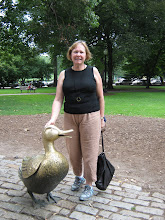Just as for other religious celebrations we can rely on Tomie dePaola to have created a picture book about it. Poinsettia Day is celebrated on the 12th December in Mexico and Tomie dePaola helps children understand its significance in his story The Legend of the Poinsettia. Then he does it for Las Posadas in his book The Night of Las Posadas.
Las Posadas, is celebrated between December 16 and 24. It commemorates the journey that Joseph and Mary made from Nazareth to Bethlehem in search of a safe refuge for Mary to give birth to the baby, Jesus. When they were unable to find lodging in Bethlehem, Joseph and Mary were forced to seek shelter in a stable, where the Christ Child was born.
Las Posadas is celebrated in cities and towns across Mexico. Each evening during the festival, a small child dressed as an angel leads a procession through the streets of the town. The procession is primarily made up of children dressed in silver and gold robes carrying lit candles and images of Mary and Joseph riding a donkey. Adults, including musicians, follow the procession, which visits selected homes and asks for lodging for Joseph and Mary. Traditionally, the procession is always refused lodging, though the hosts often provide refreshments. At each stop, passages of scripture are read and Christmas carols are sung.
Mass is held each day after the procession, and, at the conclusion of the service, children break open piñatas filled with candy, toys, and, occasionally, money. The piñatas are usually crafted in the form of the Star of Bethlehem, which is said to have guided the three wise men to the newborn Jesus. Encyclopaedia Britannica
The three wise men also appear in The Legend of Old Befana, and The Story of the Three Wise Kings other Christmas stories by Tomie dePaola.
If your family are fans of eating panettone at Christmas, it is good to also read Tony's Bread to be reminded of why it is that shape and tastes the way it does.
Just reading Tomie dePaola's Christmas stories will make you extremely knowledgable about Christmas traditions in many parts of the world. See:








No comments:
Post a Comment